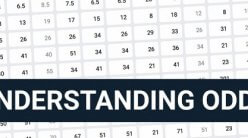
The basic types of bets that are used in sports betting are summarised here. As all Australians know, in order for any punter to create a positive cash flow with respect to sports betting, a working knowledge of the bets available is crucial. As our lives move online, or more specifically, into the cloud, we need to have certain reference points where we can access the basic information required for something.
There are so many things that are available to more people now than they ever were. Our exposure to events and experiences is greater than at any point in our development. There is no question that everyone reading this is going to be influenced by sports online betting at some point, whether it is rugby or cricket, just understanding why Australia is the Ashes ‘underdog’.
Types of Bets
Straight Bets
Straight Bets are wagers that are made against the spread. The spread, or line, is a number assigned by the bookmakers which handicaps one team and favours another. For example, in Super 15 Rugby, when two teams play each other, one is perceived as being more likely to win. To make wagering on the underdog desirable, bookmakers will give them additional points. To determine who wins against the spread, the line is either added or subtracted from a team’s final score. This is the most common type of bet in sports.
Proposition Bets
Proposition bets are wagers made on a very specific outcome of a match. Examples include predicting the number of boundaries a batsman will achieve or whether a player will score in a football game.
Parlays
Parlays involve multiple bets and will reward a successful bettor with a large pay-out. For example, a punter could include four different wagers in a four-team parlay, whereby he is wagering that all four bets will win. If any of the four bets fails to cover, the bettor loses the parlay, but if all four bets win, the bettor receives a substantially higher pay out than if he made the four wagers separately.
Teaser Bets
A teaser bet allows the punter to combine his bets on two or more different games. The bettor can adjust the point spreads for the two games, but must get all the games correct to win and recognizes a lower return in comparison to parlays.
An ‘if’ bet consists of at least two straight bets joined together by an if clause which determines the wager process. If the player’s first selection complies with the condition, then the second selection will have action; if the second selection complies with the condition, then the third selection will have action and so on.
Future Wagers
Future wagers. While all sports wagers are by definition on future events, bets listed as ‘futures’ generally have a long-term horizon measured in weeks or months; for example, a bet that a certain Big Bash team will win entire league. In general, most sports books will appreciate this type of wager due to the low win-probability, and also the longer period of time in which the house holds the player’s money while the bet is pending.
Head to Head Bets
In Head-to-Head bets, punters predict competitors’ results against each other and not on the overall result of the event. One example is Formula One races, where you bet on two or three drivers and their placement among the others.
It is our aim to support and give punters the best opportunities possible to make a success of this virtual recreational sport. We wish you the best of luck.






